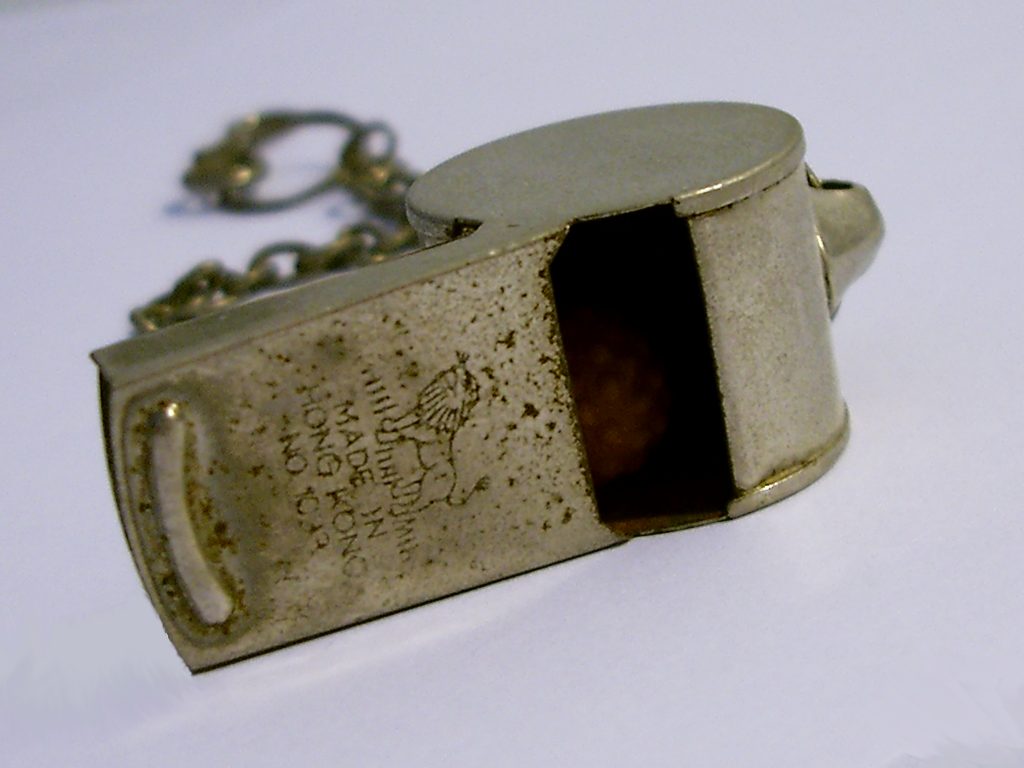In Louisiana, district courts (the lower level trial courts) have great discretion in awarding costs to a  party. These costs can include expert witness fees, deposition fees, exhibit costs, costs for the clerk of court, the cost of obtaining medical records and related expenses. See La. R.S. 13:3666, and La. C.C.P. art. 1920. Certain costs, such as clerk costs, sheriff’s costs, and the cost of taking a deposition are taxed by the court. La. R.S. 13:4533. Although La. R.S. 13:4533 defines the term “costs,” it does not discuss who is entitled to costs and under what circumstances. In a recent case, the Louisiana First Circuit Court of Appeal discusses the assignment of costs upon a party.
party. These costs can include expert witness fees, deposition fees, exhibit costs, costs for the clerk of court, the cost of obtaining medical records and related expenses. See La. R.S. 13:3666, and La. C.C.P. art. 1920. Certain costs, such as clerk costs, sheriff’s costs, and the cost of taking a deposition are taxed by the court. La. R.S. 13:4533. Although La. R.S. 13:4533 defines the term “costs,” it does not discuss who is entitled to costs and under what circumstances. In a recent case, the Louisiana First Circuit Court of Appeal discusses the assignment of costs upon a party.
In a jury trial held February 2014 in Louisiana’s Twenty-Second Judicial District Court, plaintiff Yvonne Arnaud was found to be one-hundred percent at fault for a vehicle collision that occurred on U.S. Highway 11 in Millard, Mississippi. The defendant driver, Silas Sumner was found to be zero percent at fault. Following the trial, Mr. Sumner and his co-defendants C.O.B. Enterprises and its insurer, Scottsdale Insurance Company, filed a motion seeking $53,346 in costs from Ms. Arnaud. About twenty-one thousand dollars of this amount was for expert witness fees. The District Court charged Ms. Arnaud for $30,589.95 in litigation costs, a little over half the amount sought by the defendants.
Ms. Arnaud appealed to the Louisiana First Circuit Court of Appeal. She argued that most of the expert witness fees charged to her were for work done by unknown individuals outside the courtroom. She also argued that the $30,589.95 costs in total litigation were excessive and that the District Court abused its discretion in charging any costs to her because she was indigent.
 Louisiana Personal Injury Lawyer Blog
Louisiana Personal Injury Lawyer Blog


 When a driver fails to satisfy the standard of care, the driver’s negligence during an automobile accident may be considered in a lawsuit. The standard of care is the amount of caution that must be exercised by a person who is under a duty of care. A case out of Ouachita Parish demonstrates the special rules that a left-turning driver must follow and the presumption of negligence that attaches to a left-turning driver.
When a driver fails to satisfy the standard of care, the driver’s negligence during an automobile accident may be considered in a lawsuit. The standard of care is the amount of caution that must be exercised by a person who is under a duty of care. A case out of Ouachita Parish demonstrates the special rules that a left-turning driver must follow and the presumption of negligence that attaches to a left-turning driver. According to the Alzheimer’s Association, 5 million people are currently living with Alzheimer’s disease. Statistics also show that people age 70 are 61% more likely to die from the disease before they turn the age of 80, compared to 30% of the people living without it. So what is Alzheimer’s disease? It is a type of dementia that causes problems with memory, thinking, and behavior. Symptoms worsen over time, rarely get better and are so severe that they can interfere with the daily lives of these individuals. A recent case out of the Louisiana First Circuit Court of Appeal is illustrative of just some of the hardships those who suffer from Alzheimer’s disease face.
According to the Alzheimer’s Association, 5 million people are currently living with Alzheimer’s disease. Statistics also show that people age 70 are 61% more likely to die from the disease before they turn the age of 80, compared to 30% of the people living without it. So what is Alzheimer’s disease? It is a type of dementia that causes problems with memory, thinking, and behavior. Symptoms worsen over time, rarely get better and are so severe that they can interfere with the daily lives of these individuals. A recent case out of the Louisiana First Circuit Court of Appeal is illustrative of just some of the hardships those who suffer from Alzheimer’s disease face.  Concursus proceedings can be complicated. In a concursus proceeding, multiple parties assert competing claims to money or property.
Concursus proceedings can be complicated. In a concursus proceeding, multiple parties assert competing claims to money or property.  Louisiana law strongly encourages arbitration as a method of resolving disputes. Arbitration is a form of alternative dispute resolution whereby parties agree to be bound by the decision of neutral third parties. Arbitration promotes efficiency in dispute resolution because it attempts to resolve disputes before court involvement becomes necessary. It prevents courts from becoming backlogged with excessive caseloads. While arbitration promotes court efficiency, it can be a burdensome roadblock to certain litigants seeking recovery. A recent Louisiana case is illustrative.
Louisiana law strongly encourages arbitration as a method of resolving disputes. Arbitration is a form of alternative dispute resolution whereby parties agree to be bound by the decision of neutral third parties. Arbitration promotes efficiency in dispute resolution because it attempts to resolve disputes before court involvement becomes necessary. It prevents courts from becoming backlogged with excessive caseloads. While arbitration promotes court efficiency, it can be a burdensome roadblock to certain litigants seeking recovery. A recent Louisiana case is illustrative. Are you being or have you been sued and simply can’t afford court costs and litigation due to financial instability? If this is your case, you can file an affidavit of poverty also known as obtaining pauper status pursuant to
Are you being or have you been sued and simply can’t afford court costs and litigation due to financial instability? If this is your case, you can file an affidavit of poverty also known as obtaining pauper status pursuant to  The State of Louisiana has laws in place to protect whistleblowers with legitimate claims. These laws are critical to protecting workers and promoting healthy corporate self-governance. In Louisiana,
The State of Louisiana has laws in place to protect whistleblowers with legitimate claims. These laws are critical to protecting workers and promoting healthy corporate self-governance. In Louisiana,  Getting a judgment in your favor can often feel like a big win in court. After a judgment has been declared by the court many people believe the losing side simply gets out their checkbook and pays what they owe. While this may happen in some cases, many times after getting a judgment a person must fight an uphill battle to collect on that judgment. This is exactly what happened when a Louisiana company, Monster Rentals, obtained a default judgment against Coonass Construction of Arcadia (CCA).
Getting a judgment in your favor can often feel like a big win in court. After a judgment has been declared by the court many people believe the losing side simply gets out their checkbook and pays what they owe. While this may happen in some cases, many times after getting a judgment a person must fight an uphill battle to collect on that judgment. This is exactly what happened when a Louisiana company, Monster Rentals, obtained a default judgment against Coonass Construction of Arcadia (CCA).  Language is key when it comes to the law. A court cannot give a plaintiff what he or she asks for if the request is vague. In a similar vein, a judgment’s lack of certain magic words can render it defective. Words have precise meanings in order to be given legal effect. This is illustrated by a recent of the Louisiana Fourth Circuit Court of Appeal. In this case, the Court of Appeal found that a trial court’s judgment lacked the required decretal language required to give the document legal effect.
Language is key when it comes to the law. A court cannot give a plaintiff what he or she asks for if the request is vague. In a similar vein, a judgment’s lack of certain magic words can render it defective. Words have precise meanings in order to be given legal effect. This is illustrated by a recent of the Louisiana Fourth Circuit Court of Appeal. In this case, the Court of Appeal found that a trial court’s judgment lacked the required decretal language required to give the document legal effect. Excessive police force has become a nightly topic in the American news cycle. Ranging from discrimination to life-and-death situations, no one wants to be on the receiving end of mistreatment. In a recent case, a Louisiana woman experienced what she felt was excessive force by law enforcement officers in her own home. The Court of Appeal, however, disagreed. In its decision, the Court of Appeal discussed the burden of proof necessary to succeed on civil rights claims against government officers.
Excessive police force has become a nightly topic in the American news cycle. Ranging from discrimination to life-and-death situations, no one wants to be on the receiving end of mistreatment. In a recent case, a Louisiana woman experienced what she felt was excessive force by law enforcement officers in her own home. The Court of Appeal, however, disagreed. In its decision, the Court of Appeal discussed the burden of proof necessary to succeed on civil rights claims against government officers.